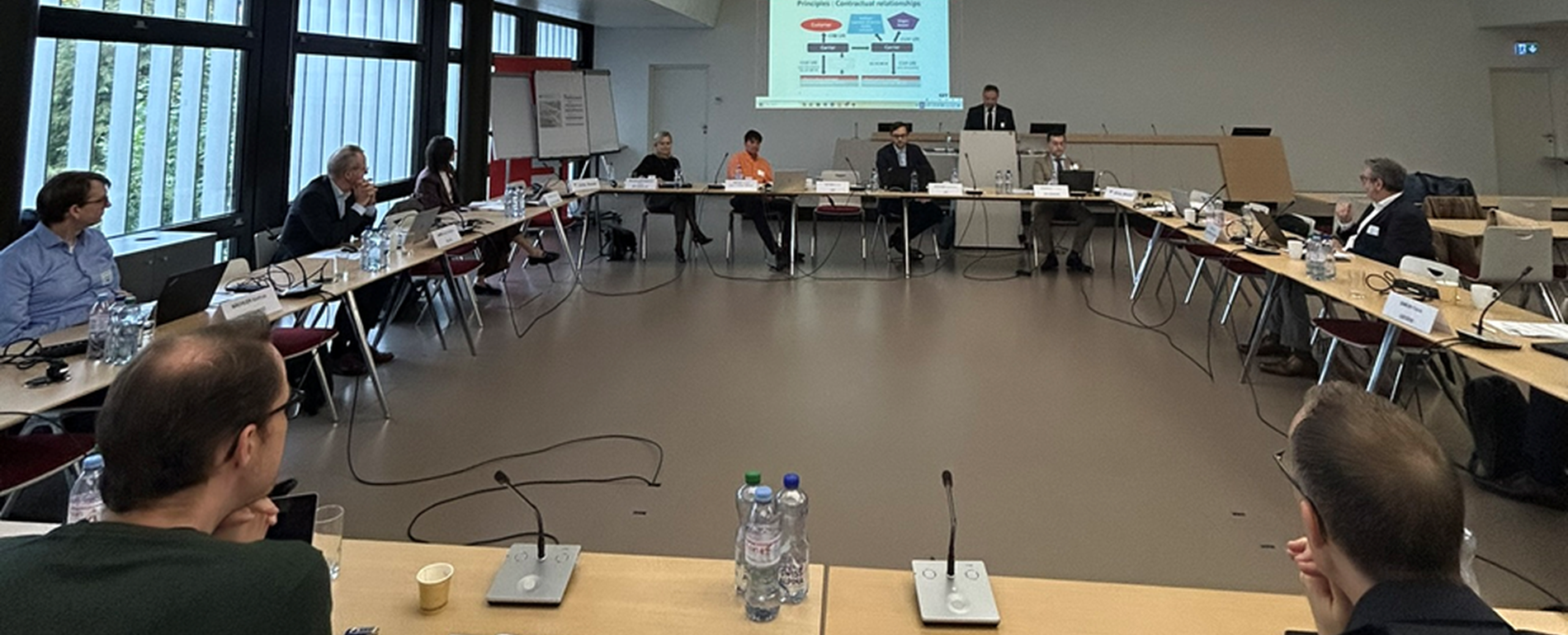3/25
The CIT Freight Claims Conference 2025

The Freight Claims Conference (FCC) of the International Rail Transport Committee (CIT) brought together a community of 55 rail freight experts and colleagues in Bern and online. The conference evaluated the various legal interfaces between carrier-carrier, carrier-wagon keeper and carrier-infrastructure manager. The event was a great success with dedicated freight members and featured ten presentations in three modules: one on COTIF/CIM regulation and international rail transport contract models; another on digitalisation with freight management tools and wagon damage management from the perspectives of the RU and the workshop (ECM); and finally, one on the non-discriminatory access to infrastructure in Switzerland and a vision for claims management in the supply chain environment.
After a speech by Gerald Wieser (RCG and member of the CIT Executive Committee), in which he discussed the issues, difficulties and challenges facing the freight sector in Europe, the CIT General Secretariat (Erik Evtimov and Guillaume Murawa) outlined the COTIF CIM regulations, the rules on liability and compensation and the procedural rules of the CIM UR. He was followed by Andrea Di Marzo (FS Logistix), who provided a detailed description of the CIM's procedural rules and explained the CIT Agreement concerning the Relationships between Carriers in respect of International Freight Traffic by Rail (AIM). Birgit Braun-Kurtenbach (DB Cargo) examined the transport models in freight: successive and substitute transport. The changes due to the switch from successive carriers (freight share model) to substitute carriers (purchase/sales model) lead to greater complexity in claims management for rail carriers. Liability scenarios with examples were used to highlight this complexity and illustrate the consequences and current challenges in claims management faced by contractual carriers.
Effective cooperation and clear contractual agreements that foster mutual solutions are essential for successful rail freight operations. With this in mind, the second module focused on the digital tools that can help RUs integrate all relevant data into the electronic consignment note CIM and facilitate seamless data exchange via the ORFEUS platform, with explanations provided by Matthias Mächler (SBB Cargo and RailData ORFEUS Chairman). The activities of the Joint Sector Group (JSG) on current developments in freight telematics applications (TAF TSI), as explained by Jan-Christian Arms (DB, Chairman of the JSG), also highlighted the significant challenges currently facing the European rail community at a technical, legal and operational level in terms of information flows and data exchange in rail freight for the future. Wagon law was covered in this second module with contributions from Alain Voltz (Rail Logistics Europe) on the application of the General Contract of Use (GCU) rules and the management by Rus of damage on wagons and claims in this matter. On the workshop side, Etienne Spormeyeur (CFL Cargo) highlighted the activities on the ECM side and the points to keep in mind for the efficient management of wagon damage with the good interaction between the RU the wagon keeper and the ECM. Finally, in the third and final module, the topics were expanded and opened to other perspectives with the presentation by Barbara Furrer (RailCom) on the non-disriminatory access to the rail infrastructure in Switzerland and the proceedings of this RailCom Commission. Pierre Simon (Geodis) provided an overview of claims handling, giving an insight into how this is dealt with in the supply chain environment and the specific features of this context that could be serve as good practice for the rail freight.
Finally, the FCC has helped to reactivate the rail freight community of operational and after-sales departments in railway companies and will enable good coordination and communication for future work and events. It provided an opportunity to explore topics such as digitalisation in freight transport and to identify new areas for work: insurance law in transport contracts applied to international rail transport, combined transport, best practices in complaint management and solutions in other modes of transport, mediation in international freight transport in order to find a solution to each claim without going through lengthy and costly legal proceedings. Also, in view of the interesting questions raised during the Q&A session, in the next years Freight Claims Conference could possibly include presentations in the morning and a workshop in the afternoon with practical case studies presented by CIT members and responses from the CIT, prepared in advance of the meeting, for greater interactivity and support for our members.
The success of this conference heralds promising exchanges to be continued in 2026 and other dedicated events in the future.
